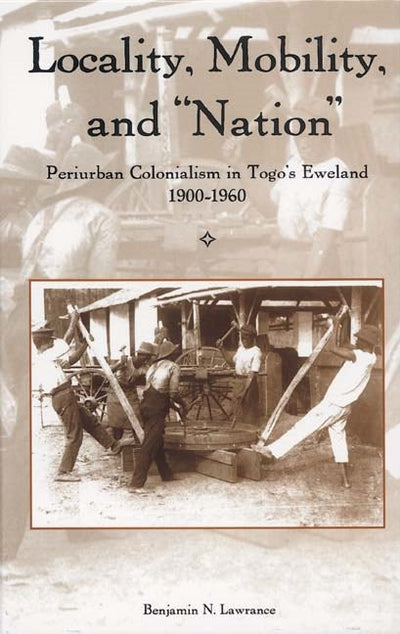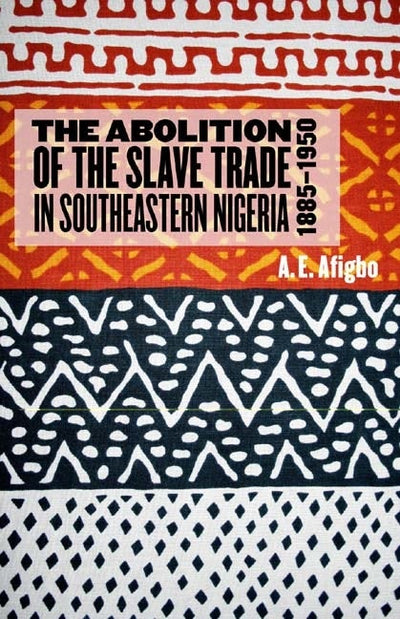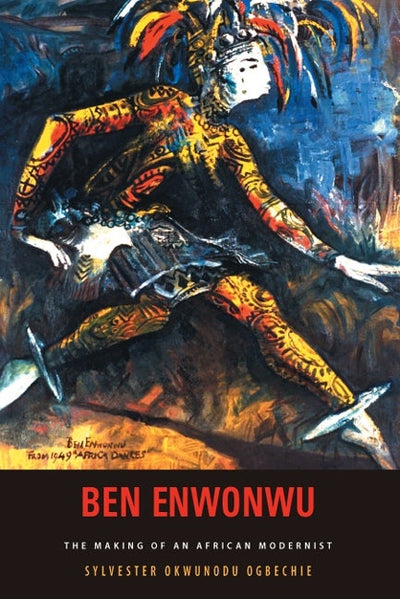-
Antiques & Collectibles
-
Architecture
-
Bibles
-
Biography & Autobiography
-
Body, Mind & Spirit
-
Comics & Graphic Novels
-
Crafts & Hobbies
-
Design
-
All collections
-
Foreign Language Study
-
Games & Activities
-
Gardening
-
House & Home
-
Humor
-
Language Arts & Disciplines
-
Literary Collections
-
Mathematics
-
Miscellaneous
-
Nature
-
Pets
-
Philosophy
-
Photography
-
Poetry
-
Reference
-
Self-Help
-
Study Aids
-
Transportation
-
True Crime
-
Antiques & Collectibles
-
Architecture
-
Bibles
-
Biography & Autobiography
-
Body, Mind & Spirit
-
Comics & Graphic Novels
-
Crafts & Hobbies
-
Design
-
All collections
-
Foreign Language Study
-
Games & Activities
-
Gardening
-
House & Home
-
Humor
-
Language Arts & Disciplines
-
Literary Collections
-
Mathematics
-
Miscellaneous
-
Nature
-
Pets
-
Philosophy
-
Photography
-
Poetry
-
Reference
-
Self-Help
-
Study Aids
-
Transportation
-
True Crime
Women's Authority and Society in Early East-Central Africa
Regular price $110.00 Save $-110.00This study of more than two thousand years of African social history weaves together evidence from historical linguistics, archaeology, comparative ethnography, oral tradition, and art history to challenge the assumptions that allAfrican societies were patriarchal and that the status of women in precolonial Africa is beyond the scope of historical research. In East-Central Africa, women played key roles in technological and economic developments during the long precolonial period. Female political leaders were as common as male rulers, and women, especially mothers, were central to religious ceremonies and beliefs. These conclusions contribute a new and critical element to our understanding of Africa's precolonial history.
Christine Saidi is Assistant Professor of History at Kutztown University.

Representing Bushmen
Regular price $110.00 Save $-110.00Representing Bushmen draws on the work of Jacques Derrida, Edward Said, and Martin Bernal to show how the study of language was integral to the formation of racial discrimination in South Africa. Author Shane Moran demonstrates the central role of literary history to the cultural racism and ideology that fed into apartheid by tracing the ethno-aesthetic figuration of the Bushmen in W. H. I. Bleek's theory of the origin of language. Moran examines the gestation of colonial ideology, and provocatively traces aspects of the post-apartheid rhetoric of commemoration and national unity to their colonialist roots.
This detailed and compelling volume contributes significantly to current trends in post-apartheid scholarship. Moran emphasizes the need for a cautious interrogation of the colonial archive and scrutiny of critical discourses used by the would-be postcolonial intellectual, and poses a timelychallenge to those committed to exorcising that legacy.
Shane Moran teaches at the University of KwaZulu-Natal.

Political Culture and Nationalism in Malawi
Regular price $130.00 Save $-130.00Inspired by the events leading up to the overthrow of Dr. Hastings Kamuzu Banda's Life Presidency, this book explores the deep logic of Malawi's political culture as it emerged in the colonial and early post-colonial periods. It draws on archival sources from three continents and oral testimonies gathered over a ten-year period provided by those who lived these events. Power narrates how anti-colonial protest was made relevant to the African majority through the painstaking engagement of politicians in local grievances and struggles, which they then linked to the fight against white settler domination in the guise of the Central African Federation. She also explores how Dr. Banda (leader of independent Malawi for thirty years), the Nyasaland African Congress, and its successor, the Malawi Congress Party, functioned within this political culture, and how the MCP became a formidable political machine. Centralto this process was the deployment of women and youth to cut across parochial politics and consolidate a broad base of support. No less important was the deliberate manipulation of history and the use of rumor and innuendo, symbol and pageantry, persecution and reward. It was this mix that made people both accept and reject the MCP regime, sometimes simultaneously.
Joey Power is Professor of History at Ryerson University, Toronto, Ontario.

John Romano and George Engel
Regular price $55.00 Save $-55.00John Romano and George Engel: Their Lives and Work is a historical biography of two distinguished physicians who were members of the University of Rochester's medical school faculty from 1946 until their deaths in the 1990s. The authors here narrate the personal histories of these two figures from their births through their medical education and postgraduate training and their activities as members of the faculties at Harvard and Cincinnati before they came to Rochester.
For each phase of their lives and work, the book explores those factors -- family influences, mentors, institutional and other forces -- that shaped the development of their philosophies of medical education and their views regarding the care of the sick. The book also examines in detail those factors that led Romano and Engel to Rochester, their work together and separately in research and medical education, and the nature of their complex personal relationship over the years.
Drawing from recorded interviews with colleagues and family members, archival materials, and published research, including the subjects' own papers, the authors round out their examination of the lives and work of two figures who had a transforming influence -- nationally and globally -- on the education of physicians, the care of patients, and research into mind-body interactions.
Dr. Jules Cohen was Professor of Medicine and Cardiology at the University of Rochester Medical Center. Stephanie Brown Clark is Associate Professor and Director of Medical Humanities Programs, University of Rochester Medical Center.

White Chief, Black Lords
Regular price $110.00 Save $-110.00White Chief, Black Lords explores the tensions and contradictions between the British colonial civilizing mission and the practice of indirect rule. While the colonial imperative was to transform colonized societies and bring them within "civilized" norms, fiscal limitations frequently resulted in ruling through indigenous authorities and customs. In this book, Thomas McClendon analyzes this deep contradiction by looking at several crises and key turning points in the early decades of colonial rule in the British colony of Natal, later part of South Africa. He focuses a keen eye on the tenure of Theophilus Shepstone as that colony's Secretary for Native affairs, examining his interactions with subject African communities.
In a series of case studies, including high drama over rebellions by African "chiefs" and their followers and intense debates over the control of witchcraft, White Chief,Black Lords shows that these colonial imperatives led to a self-defeating conundrum. In the process of attempting to rule through African leaders and norms yet to discipline and transform African subjects, the colonial state inevitably was itself transformed and became, in part, an African state. McClendon concludes by spotlighting the continuing importance of these unresolved contradictions in post-apartheid South Africa.
Thomas McClendonis Professor of History at Southwestern University in Georgetown, Texas.

Indirect Rule in South Africa
Regular price $90.00 Save $-90.00Indirect rule -- the British colonial policy of employing indigenous tribal chiefs as political intermediaries -- has typically been understood by scholars as little more than an expedient solution to imperial personnel shortages.A reexamination of the history of indirect rule in South Africa reveals it to have been much more: an ideological strategy designed to win legitimacy for colonial officials. Indirect rule became the basic template from which segregation and apartheid emerged during the twentieth century and set the stage for a post-apartheid debate over African political identity and "traditional authority" that continues to shape South African politics today.
This new study, based on firsthand field research and archival material only recently made available to scholars, unveils the inner workings of South African segregation. Drawing influence from a range of political theorists including Machiavelli, Marx, Weber, Althusser, and Zizek, Myers develops a groundbreaking understanding of the ways in which leaders struggle to legitimize themselves through the costuming of political power.
J. C. Myers is Associate Professor of Political Science at California State University, Stanislaus.

Movements, Borders, and Identities in Africa
Regular price $130.00 Save $-130.00Migration, whether forced or voluntary, continues to be an issue vital to Africa, arguably the continent most affected by internal displacement. Over centuries -- in groups or as individuals -- Africans have been forced to leave their homes to escape unfavorable natural, social, or political circumstances, or simply to seek better lives elsewhere. This essential volume establishes the centrality of human migration and movement to the evolution of African societies.
Using oral, archaeological, and written sources, and focusing on various geographical areas, the contributors show that migration is a multifaceted phenomenon, historically varied in nature and character. Movements, Borders, and Identities in Africa incorporates carefully selected case studies drawn from across the continent, and provides a broad but insightful overview of migration and its complex relationships to slavery, commerce,religion, architecture, material culture, poverty, diaspora life and identity formation, and the development of states and societies on the continent. Taken as a whole, this collection offers a groundbreaking interrogation of themyriad causes and effects of African migration, from the precolonial to the modern era.
Contributors: Edmund Abaka, Maurice Amutabi, Toyin Falola, Ghislaine Geloin, Issiaka Mande, Jean-Luc Martineau, Pius S. Nyambara, Akinwumi Ogundiran, Adisa Ogunfolakan, Olatunji Ojo, Brigitte Kowalski Oshineye, Meshack Owino, Gerald Steyn, and Aribidesi Usman.
Toyin Falola is the Jacob and Frances Sanger Mossiker Chair in the Humanities and University Distinguished Teaching Professor at the University of Texas at Austin.
Aribidesi Usman is Associate Professor of African and African American Studies and Anthropology at Arizona State University.

Radicalism and Cultural Dislocation in Ethiopia, 1960-1974
Regular price $110.00 Save $-110.00During the 1960s and early 1970s, a majority of Ethiopian students and intellectuals adopted a Marxist-Leninist ideology with fanatic fervor. The leading force in an uprising against the imperial regime of Emperor Haile Selassie,they played a decisive role in the rise of a Leninist military regime. In this original study, Messay Kebede examines the sociopolitical and cultural factors that contributed to the radicalization of the educated elite in Ethiopia, and how this phenomenon contributed to the country's uninterrupted political crises and economic setbacks since the Revolution of 1974.
Offering a unique, insider's perspective garnered from his direct participation in thestudent movement, the author emphasizes the role of the Western education system in the progressive radicalization of students and assesses the impact of Western education on traditional cultures. The most comprehensive study of the role of students in modern Ethiopian political history to date, Radicalism and Cultural Dislocation in Ethiopia, 1960-1974 opens the door for discussion and debate on the issue of African modernization and the effects ofcultural colonization.
Messay Kebede is Professor in the Department of Philosophy at the University of Dayton and is author of Survival and Modernization -- Ethiopia's Enigmatic Present: A Philosophical Discourse [1999].

Locality, Mobility, and "Nation"
Regular price $130.00 Save $-130.00In this original interdisciplinary study of Togo and African colonial history, Benjamin Lawrance synthesizes political, gender, and social history by documenting the contributions of rural-dwelling populations in anti-colonial struggles. Anchoring his arguments on the premise that nationalist historiographies have overstated the role of urban and elite power while undervaluing the strategic place of rural constituencies, Lawrance uses the Ewe nationalist movement of southern Togo as a case study in what he terms "periurban colonialism" -- a historical paradigm that reunites the urban and rural experiences of post-World War I colonialism. By reconciling the marginal and non-elite communities and the social upheavals of the two World War periods, Lawrance offers a new perspective on the colonial experience and the anti-colonial struggle. In focusing on an African country uniquely colonized by the Germans, British, and French, he provides a wealth of information not readily available to the English-language audience. Accessible to scholars of African social history and African culture in general, Locality, Mobility, and "Nation"will occupy a distinguished place among studies of African colonial history and anti-colonial struggles.
Benjamin N. Lawrance is Assistant Professor of African History at the University of California, Davis, where he teaches undergraduate and graduate African and World History. He is the editor of The Ewe of Togo and Benin [2005] and the co-editor of Intermediaries, Interpreters and Clerks [2006].

The Abolition of the Slave Trade in Southeastern Nigeria, 1885-1950
Regular price $110.00 Save $-110.00The Abolition of the Slave Trade in Southeastern Nigeria, 1885-1950, is a history of the campaign waged by Great Britain in colonial Nigeria from approximately 1885 on, to abolish the internal slave trade in the Bight of Biafra and its hinterland, a region also known as Eastern Nigeria, Southeastern Nigeria, the Eastern Provinces, or the trans-Niger Provinces. It treats the internal slave trade and the war against it in this region and period as themes separate from the institution of slavery in the same area and the campaign to root it out generally known as emancipation. For this reason, and because slavery and the effort at emancipation have received more attention from scholars, this work concentrates entirely on that aspect of the slave trade and its fortunes under British colonial rule commonly known as abolition. In reconstructing the story of this important and protracted campaign, Adiele Afigbo sheds light on a dark corner of social history that has largely been neglected by historians.
Adiele Afigbo is Pofessor in the Department of History and International Relations at Ebonyi State University, Nigeria.

Ben Enwonwu
Regular price $130.00 Save $-130.00An intellectual biography of a modern African artist and his immense contribution to twentieth-century art history.
The history of world art has long neglected the work of modern African artists and their search for forms of modernist expression as either irrelevant to the discourse of modern art or as fundamentally subservient to the established narrative of Western European modernist practice. With this engaging new volume, Sylvester Ogbechie refutes this approach by examining the life and work of Ben Enwonwu (1917-94), a premier African modernist and pioneer whose career opened the way for the postcolonial proliferation and increased visibility of African art.
In the decades between Enwonwu's birth and death, modernization produced new political structures and new forms of expression in African cultures, inspiring important developments in modern African art. Within this context, Ogbechie evaluates important issues such as the role of Anglo-Nigerian colonial culture in the development of modern Nigerian art, and Enwonwu's involvement with international discourses of modernism in Europe, Africa, and the United States over a period of five decades. The author also interrogates Enwonwu's use of the radical politics of Negritude ideology to define modern African art against canonical interpretations of Euro-modernism; and the artist's visual and critical contributions to Pan Africanism, Nigerian nationalism, and postcolonial interpretations of African modernity.
First and foremost an intellectual biography of Ben Enwonwu as a modern African artist, rather than an exhaustive critical exploration of the discourse of modernism in African art history or in modern art in general, Ben Enwonwu situates the artist historically and interprets his work in ways that surpass traditional discourse around the canon of modern art.













